
So Good They Can't Ignore You: Why Skills Trump Passion in the Quest for Work You Love
Cal Newport, Dave Mallow, et al.
4.5 on Amazon
37 HN comments

The Richest Man in Babylon: Original 1926 Edition
George S. Clason , Charles Conrad, et al.
4.7 on Amazon
37 HN comments

Basic Economics
Thomas Sowell
4.8 on Amazon
35 HN comments
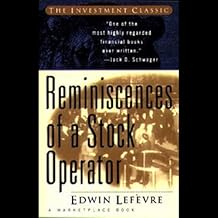
Reminiscences of a Stock Operator
Edwin Lefevre, Rick Rohan, et al.
4.6 on Amazon
35 HN comments
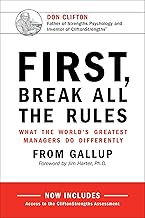
First, Break All the Rules: What the world's Greatest Managers Do Differently
Jim Harter, Marcus Buckingham , et al.
4.6 on Amazon
34 HN comments
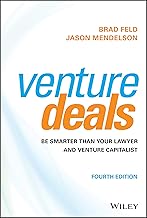
Venture Deals: Be Smarter Than Your Lawyer and Venture Capitalist
Brad Feld and Jason Mendelson
4.7 on Amazon
31 HN comments
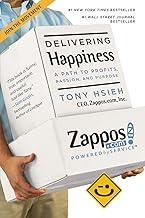
Delivering Happiness
Tony Hsieh
4.6 on Amazon
30 HN comments
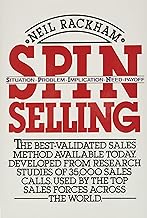
SPIN Selling
Neil Rackham
4.5 on Amazon
30 HN comments

Nickel And Dimed: On (Not) Getting By In America
Barbara Ehrenreich
4.3 on Amazon
29 HN comments

The Five Dysfunctions of a Team: A Leadership Fable
Patrick Lencioni
4.6 on Amazon
28 HN comments

The Startup Owner's Manual: The Step-By-Step Guide for Building a Great Company
Steve Blank and Bob Dorf
4.5 on Amazon
27 HN comments

Give and Take: A Revolutionary Approach to Success
Adam M. Grant PhD, Brian Keith Lewis, et al.
4.6 on Amazon
25 HN comments

Titan: The Life of John D. Rockefeller, Sr.
Ron Chernow
4.7 on Amazon
23 HN comments

The Challenger Sale: Taking Control of the Customer Conversation
Matthew Dixon and Brent Adamson
4.5 on Amazon
22 HN comments
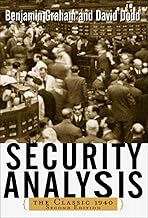
Security Analysis: Principles and Techniques
Benjamin Graham and David Dodd
4.7 on Amazon
22 HN comments
peternickyonJune 4, 2017
- So Good They Can't Ignore You
- Deep Work
- Hackers by Steven Levy (perhaps my favorite book)
- Learning How To Learn
- The Person and the Situation
- The Art of Money Getting
- Make It Stick
- The Algorithm Design Manual
- Moonwalking With Einstein
- Extreme Ownership
malicebirdonMar 7, 2020
malcolmmcconSep 26, 2012
edraferionFeb 7, 2013
It lays out a clever mental model for turning interests into skills into control over your career.
http://www.amazon.com/Good-They-Cant-Ignore-You/dp/145550912...
strengthftwonOct 6, 2012
rwieruchonDec 12, 2018
- Being Mortal by Atul Gawande
- Sapiens by Yuval Noah Harari
- So good they can't ignore you by Cal Newport
- 21 Lessons for the 21st Century Yuval Noah Harari
3stripeonJan 16, 2017
1. Develop skills that are rare and valuable
2. Do something useful and good for the world
3. Work with people you like
spaceknarfonFeb 6, 2019
troydjonSep 10, 2016
[1] https://www.amazon.com/Good-They-Cant-Ignore-You/dp/14555091...
[2] https://www.youtube.com/watch?v=qwOdU02SE0w
[3] https://www.youtube.com/watch?v=IIMu1PGbG-0
codyZonSep 3, 2016
I would be cautious with Cal Newport's books and take it with a box of salt, however. To be fair, I only read one of his books (So Good They Can't Ignore You). His intentions with framing the book and its details are great. But I found it hard to trust that he actually believes in some of the things he writes - as opposed to just writing books that can sell well
diamonisonOct 21, 2013
Well, a lot more could be said...
The point is not to mistake boredom, lack of passion, burn out for hating your current career. There may be legitimate reasons for hating it of course.
tpaschalisonMay 12, 2020
[1] "So Good They Can’t Ignore You" by Cal Newport. It changed the way I look at my career and how I view my personal development.
[2] ADP 6-22 Army Leadership and the Profession by the US Army. Looking past the militaristic stuff, it made me change the way I see leader/subordinate relationships and how to start becoming a person others can depend on and look up to.
[1] https://www.amazon.com/Good-They-Cant-Ignore-You/dp/14555091...
[2] https://www.amazon.com/Army-Doctrine-Publication-Leadership-...
armagononJuly 15, 2019
- finding a job is awful. Networking is key -- but read that as 'spending time with other people doing interesting things leads to opportunities'. Consider attending or hosting meetups, or going to/presenting at conferences.
- Programming is a lot more than knowing a particular library or language, and good companies realize this. At its core, it is the problem solving skills and getting things done, and you haven't programmed in that many languages without learning to do that.
- Consider contributing to an open-source project. It may be a great way to 'unrust' your skills.
- Consider taking further education; there are distance universities or online universities (ex. http://www.cvu-uvc.ca/ -- should be something similar where you are from). edX has great courses; there is OpenCourseware, Udemy, etc.
- Two books I'd like to recommend: "So Good They Can't Ignore You" by Cal Newport, and "Range: Why Generalists Triumph in a Specialized World" by David Epstein.
Good luck.
mark_l_watsononJune 30, 2018
I had a summer job programming in 1970 and really didn’t like it, but I was making something like $5/hour and learned FORTRAN. When I graduated with a BS in Physics and wanted a job I took a scientific programming job. I thought, ‘yuck, oh well.’ Funny thing was, after about 6 months I realized how good I was and that made it fun. I even gave up all free time for 2 years to take undergraduate and graduate CS classes at a local university.
Yes, the better you get at something, the more fun it sometimes is.
truth_onMay 22, 2021
He debunked the "passion hypothesis" and gave practical advices along with the stories of several successful people from real life.
He is vehemently against "follow your passion" advice. He said in his book that if Steve Jobs focused on what he was passionate about, he would be a Zen monk in some monastery, and not a tech billionaire.
I picked up his book because he is a CS PhD and Asst. Professor, and not another 'buy-my-book-because-I-am-successful-in-selling-this-book' guy.
This is a short book and I highly recommend it.
[0]: https://www.goodreads.com/book/show/13525945-so-good-they-ca...
cl42onAug 4, 2013
Most people give the advice of "Do what you love and get most excited about" and this is, to some extent, the advice I would have given as well. However, when I think back to the work I've done and that has made me most proud in life, a bit chunk of it is simply doing new things, and pushing myself further than ever before. Cal Newport's advice is more along the lines of "Do what you're really good at, rather than only what you love."
Of course, this assumes you don't hate what you're doing. Food for thought.
whiddershinsonJune 11, 2018
It seems your fundamental challenge is you aren't getting things done. If you can't accomplish things, this indicates you are missing critical, learnable skills that can change your life for the better.
Don't worry so much about the immediate details of your situation and take steps to address your ability to accomplish what you set out to do.
Perhaps you have untreated ADHD or mild depression. Perhaps you don't actually enjoy coding, but just think you do.
Or if not, very likely you have counterproductive habits, which will take time to change but luckily there are fantastic resources out there.
I would recommend you read all of these:
How to Fail at Almost Everything and Still Win Big - Scott Adams
The 7 Habits of Highly Effective People - Steven Covey
12 Rules For Life - Jordan Peterson
The War Of Art - Steven Pressfield
So Good They Can't Ignore You - Cal Newport
and if those don't help, you might have ADHD:
Driven to Distraction - Edward M. Hallowell
Meanwhile, make as much human connection as feasible, so you remember there's more to life than your career.
Changing how you operate to be more effective and aligned with your goals isn't an overnight project, but it is totally possible and you will get there.
--
edited for grammar and formatting
terminalcommandonFeb 24, 2018
If you're interested in improving your productivity by simplifying your work, it is a good book.
But like all self-help books its effect wears off over time.
Keep in mind that Cal Newport is an academic at MIT. He has autonomy, he works in a field he loves etc. For other people his point of view is valuable, but his advice IMHO is not that easy to follow. You may need to improvise and find your own way.
SMAAARTonOct 17, 2020
Alas, being a consultant is a lot about being in sales, how are your selling skills?
I think for a while you need to continue what you're doing, as you're doing; AND - along the way - investigate ways on where to bring your consultancy. Besides the usual suspects of books on selling, I also recommend the following reading:
* So Good They Can't Ignore You: Why Skills Trump Passion in the Quest for Work You Love
* https://www.joelonsoftware.com/
* Rework
* Little Bets
* http://www.paulgraham.com/articles.html
ArubisonDec 22, 2016
In no particular order...
Cixin Liu -- The Three-Body Problem, The Dark Forest. Good read, as you'll see on everyone else's list.
Neal Stephenson -- Seveneves. Really good but arguably his weakest in some time; I wish the first three-quarters of the book were shorter and the final quarter a book in and of itself.
Cal Newport -- So Good They Can't Ignore You. I found this longer than necessary but an excellent kick in the pants.
Marcus Aurelius -- Meditations. Feels like a good "life reference" rather than a straight-through read.
Roald Dahl -- Boy, Going Solo. These were fun when I first went through them years ago, and they still _are_ fun, but the lens through which I view live has become one increasingly allergic to entitlement, and boy, if you want entitlement, look to the Brits at the end of the imperialist era.
Ed Catmull -- Creativity, Inc. Read this for work. Enjoyable but ehh.
Peter Tompkins -- The Secret Life of Plants (unfinished). I tried but couldn't get past the rampant bad science.
Steve Martin -- Born Standing Up. This was a fun profile of a comic that I appreciate; if you're already a fan it's worthwhile, otherwise skip it.
Derek Sivers -- Anything You Want. You can blow through this in a day and you should.
Worth highlighting, my most influential read this year:
Tara Brach -- Radical Acceptance. I loved this. No: I _needed_ this. Rather than the many philosophy-influenced books you'll find in this thread that are really business books with new buzzwords, this is just about loving yourself and building on that to live life fully. This will not (at least directly) help you build a startup. This will (directly) help you build important relationships.
SatvikBerionSep 24, 2012
1. Autonomy. The feeling of freedom and control over your work.
2. Mastery. The feeling that you're good at what you do and getting better.
3. Relatedness. The feeling that you're working with people you like.
When you're doing something on the side, you almost always have all of the above. When you start a job doing something, you almost always lose all of the above.
The real question is how to gain Autonomy, Mastery, and Relatedness at a job. It's not impossible by any means. But it does frame the question differently, since those 3 traits are often more critical to enjoying your day-to-day life than exactly which field you work in.
For a very good book that goes into much more detail, see So Good They Can't Ignore You by Cal Newport.
(I went through a very similar experience with losing interest in a field I loved because I "had to" do it. Working on gaining control over my career completely rekindled my love for the subject, stronger than ever).
j45onJan 12, 2019
How to organize things is as important as balancing why the things are important.
The core book to start with is Getting Things Done by David Allen. It gets momentum going and allowed me to look up and around.
These books that have helpful to connect the productivity to trusting we're doing the right things in terms of meaning and purpose.
Set the stage:
Book 1: Mindset by Carol Dweck (are you really open to possibilities and not a fixed mindset?)
Book 2: The Power of Habit (how do you build small new skills, since are only a sum of our habits, and those habits can change)
Getting prioritized:
Book 3: Focal Point by Bryan Tracy (find and set the priorities in all areas of life)
Getting and staying organized and focused:
Book 4: Getting Things Done by David Allen (the how to get it done and stay organized and keep it all out of your head, biggest productivity book of the last 20 years)
Book 5: Deep Work by Cal Newport (regain the power of focus to get twice as kuch done.. With the same effort and no distractions)
Book 6: So good they can't ignore you by Cal Newport (now that you're going, how do you really make an impact in what you're putting your time into)
Book 7: The Miracle Morning. I'm a night owl. This book convinced me that the late night is the same thing as the super early morning, except I'm rates and have way more energy.
The order may vary for others, in hindsight I'd read them in this order, but starting with Getting Things done and working through the rest as you like is realistic too.
Happy to learn about any books you'd like to share.
l_tonJune 8, 2020
The book "So Good They Can't Ignore You" by Cal Newport was really beneficial for me to build a mental model about career growth.
In short, "career growth" is basically _building an asset_ and then _bartering that asset_ for things you want. So in your case, it's really important to understand two things:
1. What assets (career capital) do you have? e.g. Authority borne of experience, a history of demonstrating excellence (or at least good-enoughness), a good network/references, etc.
2. What do you want to barter those assets for? What kind of job do you want to have, ideally?
As an example, in my case, I felt my "capital" was fairly low -- I was still a junior developer. But, I really wanted to work remotely, and work-life balance is very important to me. So, I willingly accepted a pay cut to work from home. Then by building more capital over time, I've been able to raise my salary back to the original level, and above.
In your case, perhaps you should evaluate whether you have accumulated enough "capital" to "fund" a significant spike in salary, or not. (Chances are, if you've been working at a place for years, you have also made some demonstrable growth. If not, you might want to think about how to grow your responsibility at your current gig.)
vowellessonDec 28, 2019
* (Lot's of machine learning books to list: PRML, All of Stats, Deep Learning, etc.)
* Active Portfolio Management - Kahn, Grinold
* Thinking, fast and slow - Kahneman
* Protein Power (the Eades') / Why we get fat (Taubes)
* Why we sleep (Walker)
* Deep Work / So Good They Can't Ignore You (Newport)
* Flowers for Algernon (Keyes)
* Getting to Yes (Fisher)
eric-huonJune 21, 2016
I read a book recently called "So Good They Can't Ignore You." One of the author's points is that a popular idea in the last couple of decades is that one can find their passion, then all will be well in the world.
I bought into this passion principle and spent nearly a decade trying out, among other things, RF engineering, tutoring, cooking, and volunteering in a restaurant and in a drug rehab clinic. This was all after I graduated with good grades and a major in CS. I don't regret my path, but I also don't think I did much social good in that time. The volunteer work at the rehab clinic was social good, but it was low skill, so I now question it's effectiveness in the world.
Another point in that book is that people develop a lasting love for fields they get good at. I'm finding that again in software, over time as I become a better developer. I believe people don't stumble across a happily ever-after career, which is what "find your passion" implies.
As an aside, I'm glad to see this project, as it's a step in a well intentioned and more intelligent direction than "find your passion."
plinkplonkonDec 20, 2012
In the book he says (among other things) that how you become 'so good that...' etc is by what he calls 'deliberate practice' - which in turn has two components -
(1) 'deep work', the doing of which actively stretches you while you are doing it (in term of guitar playing, this would be acquiring new rhythmic abilities, vs just playing/performing songs you already know). The 'practice' in deliberate practice should maximise 'deep work' (as per Newport)
(2) fast feedback loops - either by other (and ideally better than you) people, or built in (if you play a note wrong, you know instantly)
This blog entry and its neighbors seem to explore how he applies this philosophy to his chosen activity (research in CS). It is not entirely clear how to apply it to programming.
IsaacLonMay 14, 2013
It's something that resonates a lot with me, after bumming around a lot asking "is this what I really want to do?" I eventually realised that the whole "do what you love and you will never work a day in your life" is simply a fantasy. Of all the infinite things you could be doing, you will never know if you are doing the best or most important thing. Doesn't matter. Your life is not that important. You will never be able to put an end to the questioning and self-doubt. Doesn't matter. You can learn to enjoy the questioning, and appreciate that you are one of the privileged 0.1% of humans who actually get to choose what they do with their lives.
One other thought: why do people believe they can do it overnight? I think it's because we see (what look like) overnight successes. On closer inspection they are no such thing.
I can't be the only Hacker News reader who, at the age of 19, thought "hey, that Mark Zuckerberg guy made a website that made him rich at age 19, I can make websites, ergo I can be the next Mark Zuckerberg!" But to emulate Zuck you have to look at what he was doing at age 14. Turns out he was building successful tech products for several years before he started working on Facebook. Then you get cases like Nick from Summly, which looks like a combination of rich parents, savvy investors and a desperate buyer (Yahoo). All that is true. Luck and circumstances did play a part in his particular success. But he's still a very smart guy who wouldn't have achieved what he did without intelligence and hard graft.
gtirlonionDec 13, 2019
* [reading] Atomic Habits (https://www.amazon.com/gp/product/1847941834)
* [reading] So Good They Can't Ignore You (https://www.amazon.com.br/gp/product/1455509124)
* 97 Things Every Engineering Manager Should Know (https://www.amazon.com/gp/product/1492050903)
* The Manager`s Path (https://www.amazon.com/gp/product/1491973897)
* The Five Dysfunctions of a Team (https://www.amazon.com/gp/product/0787960756)
* Overcoming the Five Dysfunctions of a Team (https://www.amazon.com/gp/product/0787976377)
* Who: The A Method for Hiring (https://www.amazon.com/gp/product/0345504194)
* Power Score: Your Formula for Leadership Success (https://www.amazon.com/gp/product/0345547357)
I'm not sure I'll get to all of them but I spent quite some time researching them and think this is a good list.
I usually read 2 books simultaneously because I like to read them and let certain things sink in. It provides a nice way to link some insights.
kylebrownonFeb 6, 2013
Don't worry about finding your true calling, just get good at something which few other people are good at (skills in low supply - so not video games, sports, etc). Get good by doing "deep work", not just superficial exposure. This Ira Glass quote spoke directly to me: "I feel like your problem is that you're trying to judge all things in the abstract before you do them. That's your tragic mistake."
Doing "something with value" requires (valuable, low supply) skills ("skills trump passion". skills also trump courage, as in the "all it takes is courage to follow your dreams" message of courage culture from which comes the OP article). Developing skills requires deep work. The deep approach is to narrow the focus from "be good at math" or "be good at programming", or even "understand functional programming". This is the broad/abstract approach I've had in the past, which, in retrospect at the ripe old age of 28, has not worked super well.
New plan is to hone a craft by choosing to work intensely with "this particular design pattern" or "this particular javascript library" (looking at you d3). Most importantly, to get good at building stuff by building stuff (craftsman mindset). Get good first, because you won't become passionate about something you're not good at.
fouconSep 8, 2018
I want to recommend two books for you to read. One is about developing your monetary power. The other is about developing your career capital.
"Early Retirement Extreme" by Jacob Lund Fisker.
"So Good They Can't Ignore You" by Cal Newport.
You might be homeless right now because you haven't been protecting your personal power. The personal power to command a good salary. The personal power of having money in the bank.
You might have been giving away your power and depending on other people. Try to watch out for that.
The more you build your career capital, and the more you build your bank capital, the more free you'll be.
Imagine having money in the bank that lets you walk away from a shitty job. Imagine having the savings that lets you take a few months to find a new & better job.
We know you have skills. Your linkedin profile could be improved, some more detail on what you did at each job, and include some of your portfolio in there.
You can find work on upwork.com or other sites. Setup a profile on there, set your hourly rate at $20/hr, and start from there. On your profile, highlight the fact that you're in Iowa and fluent in english.
thirdtruckonDec 9, 2012
If we want to get ahead in a field, we have to seek out the hard problems, those that put us great mental strain to tease apart and comprehend. This might not require 80 hours of effort a month, but even 20 hours of such deep effort will feel like 80.
In other words, we have to do the weight-lifting equivalent of several reps every day that go just beyond our weight limit. Many others exhaust themselves on a hundred reps of a comfortable weight, but that will never increase their strength.
brooksideonJune 9, 2017
My choice was almost entirely pragmatic, and was heavily influenced by the book So Good They Can't Ignore You[0] by Deep Work author and Georgetown CS professor Cal Newport.
As for the bootcamp experience - I have trouble focusing for long classes, and would have benefited from a couple or more months of pre-study. (Classmates who did the best during the course had the most prior knowledge.)
However, the camp was a great launching point. I did work my ass off, staying up all night to work on individual and group projects in the lobby of the Ace hotel. If anything, the bootcamp helped solidify my own internal identify shift.
3.5 years later, I'm happy with my choice. I'm currently working remote for a startup and teaching evening intro to coding classes (yeah, at a bootcamp, so take my account with however many grains of salt). I really like teaching, and enjoy the intellectual challenge, salary and freedom provided by my day job.
Most of my classmates who I am in touch with are working as developers and seem to be doing alright also.
[0] https://www.amazon.com/Good-They-Cant-Ignore-You/dp/14555091...
rpicardonApr 14, 2014
“The Baffling Popularity of Randomized Linear Network Coding
As I write this chapter, I’m attending a computer science conference in San Jose, California. Earlier today, something interesting happened. I attended a session in which four different professors from four different universities presented their latest research. Surprisingly, all four presentations tackled the same narrow problem—information dissemination in networks—using the same narrow technique—randomized linear network coding. It was as if my research community woke up one morning and collectively and spontaneously decided to tackle the same esoteric problem.
This example of joint discovery surprised me, but it would not have surprised the science writer Steven Johnson. In his engaging 2010 book, Where Good Ideas Come From, Johnson explains that such “multiples” are frequent in the history of science. Consider the discovery of sunspots in 1611: As Johnson notes, four scientists, from four different countries, all identified the phenomenon during that same year. The first electrical battery? Invented twice in the mid-eighteenth century. Oxygen? Isolated independently in 1772 and 1774. In one study cited by Johnson, researchers from Columbia University found just shy of 150 different examples of prominent scientific breakthroughs made by multiple researchers at near the same time.”
Excerpt From: Newport, Cal. “So Good They Can't Ignore You: Why Skills Trump Passion in the Quest for Work You Love.”
His thesis on this is basically that these discoveries depend on a lot of other things occurring first and that once those things have occurred, anyone looking in the right place will see it.
With all of that said, I remain skeptical, at least in the Heartbleed case (they're just SOO close together). tptacek has more experience in these things than me of course, so I'll defer to his thoughts.
scastielonJuly 17, 2020
As an introduction example, he mentions Steve Jobs who said to graduating students (during a speech made viral), that they should follow their passion in their (professional) life. But when Newport digs a little, turns out it was actually not at all what Jobs did in his career. Yet, no one would say that he wasn’t passionate about his work.
mark_l_watsononApr 12, 2018
I am sharing this article with friends and family to maybe help them understand why I don’t want to use social media, rather, I want to talk on the phone, email directly, and travel to see people.
I manage a machine learning/AI team so I am not against technology, but technology truly needs to serve human needs.
kirubakaranonDec 22, 2016
Books Read in 2016:
1. The Recursive Universe: Cosmic Complexity and the Limits of Scientific Knowledge
- Poundstone, William
2. My Brain is Open: The Mathematical Journeys of Paul Erdos
- Schechter, Bruce
3. One Summer: America, 1927
- Bryson, Bill
4. The Three-Body Problem (Remembrance of Earth’s Past, #1)
- Liu, Cixin
5. The Dip: A Little Book That Teaches You When to Quit
- Godin, Seth
6. At Home: A Short History of Private Life
- Bryson, Bill
7. Kings of Kings (Hardcore History, #56-58)
- Carlin, Dan
8. Blueprint for Armageddon (Hardcore History #50-55)
- Carlin, Dan
9. Pitch Anything: An Innovative Method for Presenting, Persuading, and Winning the Deal
- Klaff, Oren
10. William Shakespeare: The World as Stage
- Bryson, Bill
11. So Good They Can't Ignore You: Why Skills Trump Passion in the Quest for Work You Love
- Newport, Cal
12. The War of Art: Break Through the Blocks & Win Your Inner Creative Battles
- Pressfield, Steven
13. In a Sunburned Country
- Bryson, Bill
14. Cannery Row
- Steinbeck, John
15. Traction: A Startup Guide to Getting Customers
- Weinberg, Gabriel
16. Deep Work: Rules for Focused Success in a Distracted World
- Newport, Cal
17. Starship Troopers
- Heinlein, Robert A.
18. No Touch Monkey!: And Other Travel Lessons Learned Too Late
- Halliday, Ayun
arindoneonFeb 4, 2013
Sure, it's easy to cash that in for a sweet job if you're a very hard worker (note: not necessarily "passionate") and/or if you have some valuable skills that would just deprecate if left to incubate in college for 4 years. Sure, if you're going to college for a liberal arts degree or english lit then the 4 year investment of >$100k is not worth your time.
I do respect the fact that you somewhat avoid the maxim that "it was a waste of time for ME therefore YOU shouldn't go to college." But I think the center is displaced disingenuously -- university is for developing a skill set that may not be there just yet. If I taught myself to cook and have been cooking for a few years, but my friends can't and they're all going to cooking school to learn to cook, I can't complain and say "Cooking school was a waste of time to me -- in fact all you need is passion to just go do it!" as if that's a meaningful statement or maxim to be sent out into the world. Because we know that borders on BS.
I believe significantly in taking advantage of your strengths; however hard work, regardless of the setting, is the true differentiator.